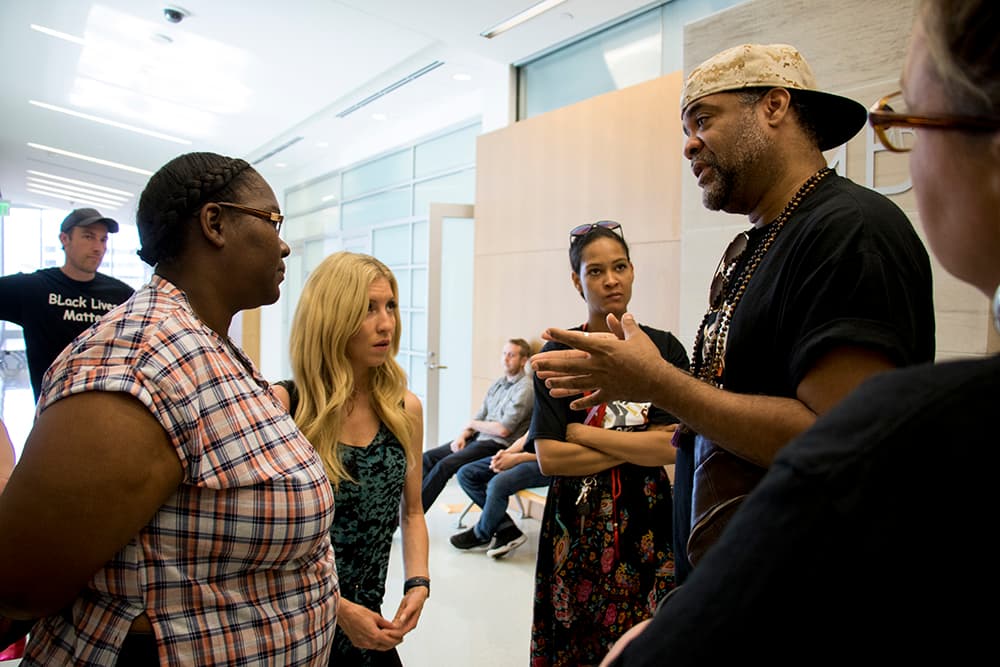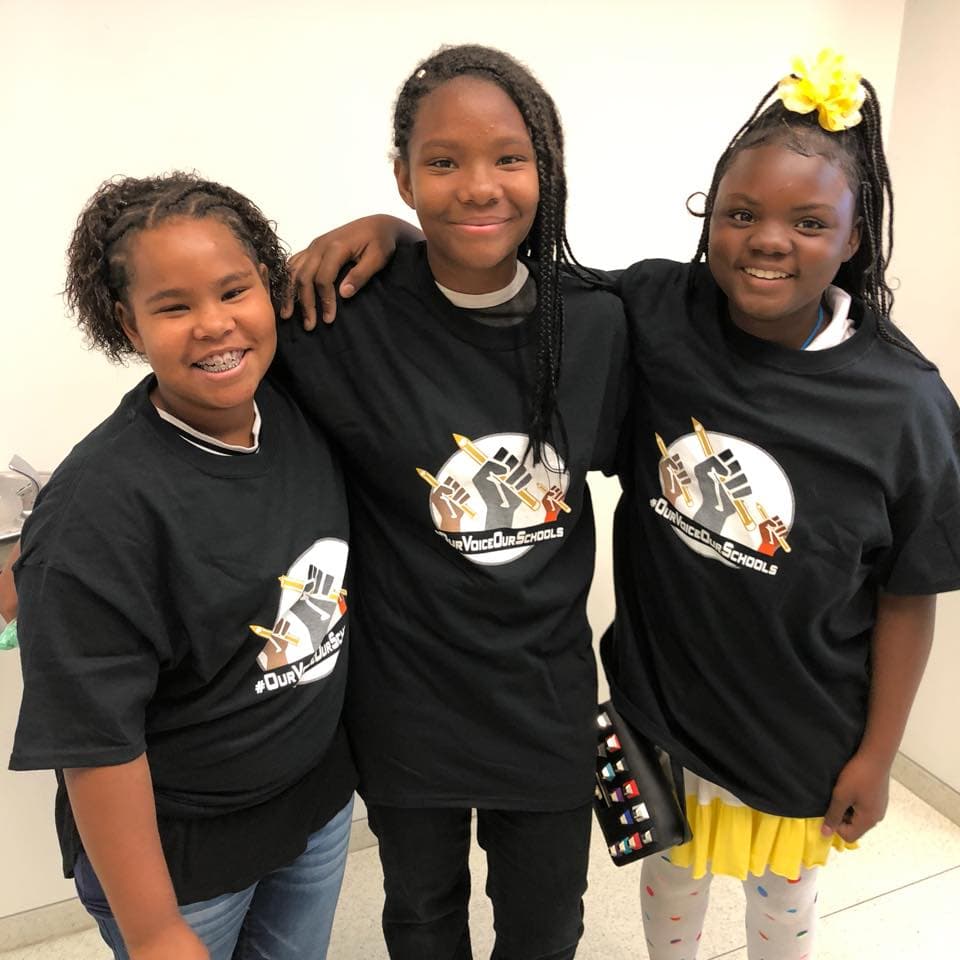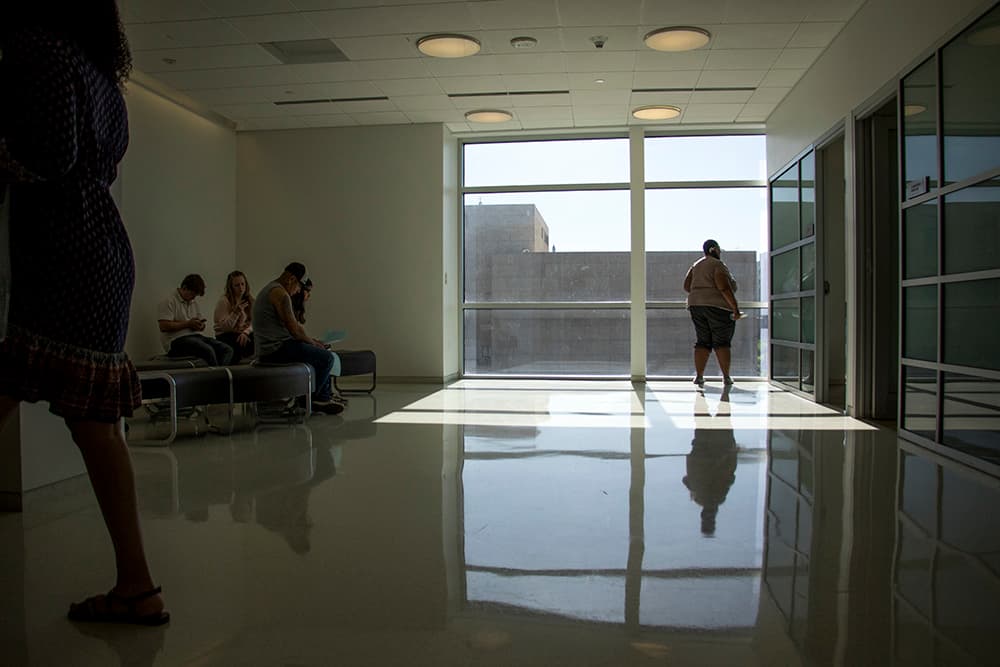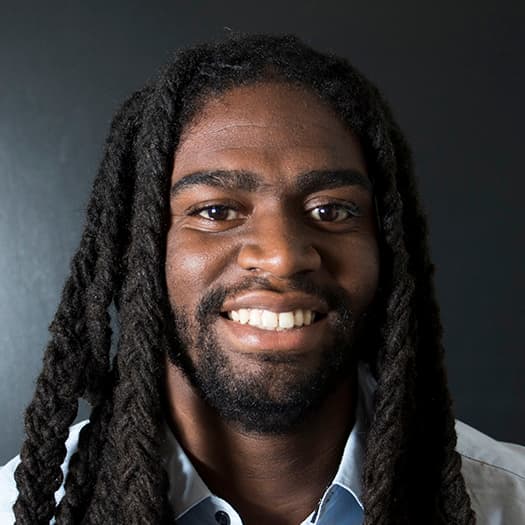
An argument between three 11-year-old friends quickly escalated into a physical fight at Wyatt Academy a few weeks ago, and a restorative justice officer is accused of egging them on. The event soon became part of a broader conversation about the experience of students of color in Denver schools.
The school staffer denied encouraging the fight and claimed he was about 20 feet away from the three girls when all of this occurred. But a video of the fight shows him much closer than that, and picks up audio of him asking, "So is anyone going to hit anyone?"
After the girls engaged in a physical fight, the same restorative justice officer attempts to break up the fight by restraining one of the girls and, a group of advocates calling themselves Our Voice Our Schools has claimed, then body-slammed her to the ground.
OVOS sees problems not only with the way the event unfolded on the schoolyard, but also cites the school's handling of the event afterward as a prime example of how easily black and brown youth can get caught up in a system that sees black students suspended or expelled at three times the rate of their white peers and in which black students make up 16 percent of the public school population but 31 percent of the arrests, according to the ACLU.
Former Denver Public Schools teacher and current president of Curls on the Block Analise Harris says that he violated basic DPS procedures, citing a smirk, dismissiveness and taunting she saw on the video.
"What I saw in the video in was two major errors," she said. "The opportunity for de-escalation by removing one of the students from the situation could have happened. The teacher in question in the video had a walkie talkie and should have contacted someone to support him at that time when he knew there was a conflict. Instead he did the opposite and escalated the situation inquiring and agitating and instigating a fight."
DPS officials posted a statement on May 17, which read in part, "We are deeply troubled by the video of what happened at Wyatt Academy on April 20. At DPS, we are committed to ensuring that every student is educated in an environment that is physically and emotionally safe and secure and that protects their human dignity."
The statement also noted that Wyatt and DPS are cooperating with the Denver Police Department in the investigation that began on May 22.
The friends who'd been fighting with each other at school were soon on the same side of a courtroom.
According to a complaint sent to Wyatt Academy's board of directors by Rose Burton, a mother of one of the daughters involved, elementary principal Kristina Riley called the police multiple times after the fight was over. Burton wrote that Riley claimed that one girl was the aggressor in the altercation, which would make her at fault for an assault.
After seeing the video, the Denver Police Department concluded that all three girls were mutual agitators and thus issued tickets for all of them, forcing the matter to be resolved in court by a city attorney on May 24 — all charges were eventually dropped.
Burton and Sheena Gordon, the mother of the other two girls, said at the Lindsey-Flanigan Courthouse that day that they were frustrated by the school's initial responses to the incident that led up to the court date. Burton said her daughter told school administrators at least four times that she and the other girls, who are friends, were having issues.
And for Hasira Ashemu, chief executive officer of OVOS, that is part of the bigger picture.
"The pre-school to prison to pipeline, based on what we are able to see today," he said, "is alive and well and its functioning towards the destruction of black and brown bodies, while making money off of it.”
Black and brown youth are punished at a disproportionate rate compared to their white peers, and Colorado is no exception to that rule. Denver Public Schools commissioned a study, which has come to be known as the Bailey Report, looking into some of the reasons for these disparities in the treatment of students of color.
The 82-page report highlighted several key areas that needed improvements regarding things like cultural competence and having more people of color in positions of authority from high-level administration all the way down. Ashemu, however, believes changes aren’t occurring fast enough and caught in the middle of this inaction are young people, whose lives can be altered forever — like a schoolyard fight resulting in these three girls and their mothers going to court.
DPS responded to follow-up questions from Denverite by referring back to their statement.
Burton also wrote that Wyatt didn't investigate its own actions until the video became public, resulting in community outrage.
Rick Brewer, Wyatt Academy's middle school assistant principal, told Denverite he was the sole administrator in the building -- along with a consultant they had hired on after the investigations began -- while other administrators' actions were being investigated.
"We wholeheartedly disagree with and are appalled by any actions that any individuals take that are against the justice of our students," Brewer said. "We embrace the community with open arms, and it's unfortunate that this situation had to escalate this far for parents' voices to be heard."
All three of the girls are in fifth grade, and as Wyatt Academy’s middle school is shutting down, the two mothers said they're looking forward to having their children in what they deem to be better school situations.
The girls and their mothers were supported at the courtroom by supporters including OVOS, education advocates, teachers and community leaders like Ryan Ross, president of the Urban Leadership Foundation of Colorado, and the head of the Aurora NAACP, Omar Montgomery. The group also included Wyatt Academy's community outreach administrator, Kate Mishara, who petitioned on behalf of the school for charges to be dropped against the three students.
While adults in the room were concerned about the court procedure, the children behaved ... like children.
Their naiveté about the gravity of the situation allowed them to giggle and play with slime as they waited in the hallway, at times even asking to play with my hair -- I have longer dreadlocks --in stark contrast to seriousness of the attorneys and officers presiding over the floor.
At the end of the day, the girls left the courtroom asking if they had to go back to school for the day and declaring their need for chicken nuggets as their mothers considered what this experience had meant for their daughters today and going forward.
When asked about the outcome of the case one of the mothers, Sheena Gordon responded, “As far as the charges that were dismissed, yes. As for the other outcomes that need to come out of this, we will see.”

The Anti-Defamation League defines the pipeline as "the school policies and procedures that drive many of our nation’s schoolchildren into a pathway that begins in school and ends in the criminal justice system."
Neither Ashemu nor the parents nor the head the NAACP believe this is an isolated incident, and they say it speaks to the character of Wyatt Academy as a whole. Montgomery, of the Aurora NAACP, said it speaks moreover to the experience black and brown students in America.
"We don’t like to see kids go to jail on school campuses unless somebody's life is in danger or something of that nature," he said. "It’s a trend for school districts within Colorado and school districts nationwide ... you have discipline that’s in the hands of law enforcement now, then it goes to the DA's office then it goes to the judge."
For Ashemu, the incident gets at the heart of a question he’s been aggressively asking the district to answer: Are charter schools working for black and brown kids in Northeast Denver? He doesn't think so.
He noted, too, the optics of the fourth floor of the Lindsay Flanigan Courthouse and its saturation of young black men accompanied by their mothers.
"To look into that room where the people were sitting you would think we were in Houston or Atlanta or someplace that had a huge black populations," he said, "because it's mostly black and brown people going through that situation."













